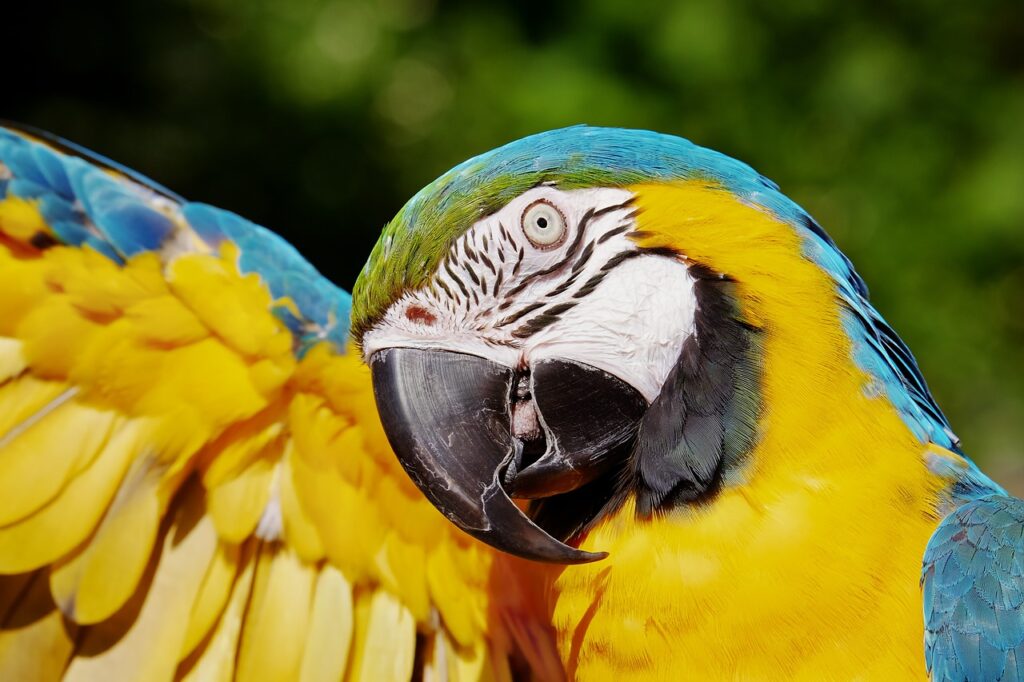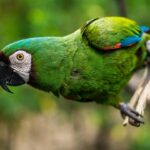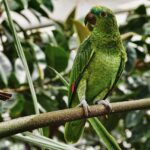Can Parrots Eat Cantaloupe — Find Out If It’s Safe for Your Feathered Friend
When it comes to the dietary needs of our beloved parrots, we must carefully consider each food item we introduce to their regimen. In this article, we delve into the question, can parrots eat cantaloupe? We will explore the advantages, recommended quantity, potential cautions, and even touch upon other pets that can also enjoy this fruit. Let’s uncover the truth and discover whether cantaloupe is a suitable treat for our feathered friends.
Benefits of Cantaloupe for Parrots
Cantaloupe, with its enticing aroma and sweet flesh, can offer some compelling health benefits to parrots. First and foremost, this fruit is a rich source of essential vitamins such as Vitamin A and Vitamin C. These vitamins contribute to the overall well-being of parrots by supporting their immune system and promoting healthy feather growth.
In addition, cantaloupe is packed with dietary fiber, which aids in digestion and helps prevent constipation. Parrots can also benefit from the high water content found in cantaloupe, promoting proper hydration. However, it’s important to feed cantaloupe in moderation as excess water intake can lead to watery droppings, which may become a concern if it persists.
Recommended Quantity for Parrots
When it comes to treating your parrot with cantaloupe, it is crucial to keep portion sizes in mind. As with any fruit, moderation is key. Start by introducing small pieces of ripe cantaloupe to your parrot’s diet. Observe any reactions or digestive changes and gradually increase the amount if no adverse effects are observed.
It is recommended to offer cantaloupe as a treat and not as a primary food source. Parrots’ main dietary requirements should still be met through a balanced diet consisting of fresh fruits, vegetables, high-quality pellets, and occasional protein sources.
Considerations and Precautions
While cantaloupe is generally safe for parrots, there are a few considerations to keep in mind. Firstly, always ensure that the cantaloupe is ripe and free from any bruises or mold. Unripe fruit may be difficult for parrots to digest and can cause digestive issues. Additionally, it is essential to thoroughly wash the cantaloupe to remove any potential pesticide residue that may be harmful to your feathered friend.
Moreover, remember that cantaloupe should be offered as a treat and not as a replacement for a well-rounded parrot diet. Avoid excessive consumption of cantaloupe as it can lead to an imbalance in their nutritional intake. Lastly, be mindful of any signs of allergies or digestive disturbances and consult with a veterinarian if you have any concerns.
Can Other Pets Enjoy Cantaloupe?
If you have other pets in your household, such as dogs or cats, you might be wondering if they can also safely enjoy cantaloupe. The good news is that both dogs and cats can have cantaloupe in moderation as long as it is served in small, bite-sized pieces. However, always be cautious and consult with your veterinarian, especially if your pet has any underlying health conditions or dietary restrictions.
Conclusion
In conclusion, cantaloupe can be a delightful and nutritious addition to your parrot’s diet if provided in moderation. Its vitamins, fiber content, and hydrating properties make it a worthwhile treat for your feathered friend. Nonetheless, it is important to remember that cantaloupe should not replace the essential components of a well-balanced parrot diet. By offering cantaloupe responsibly and observing your parrot’s response, you can treat your pet to a tasty and healthy snack.






